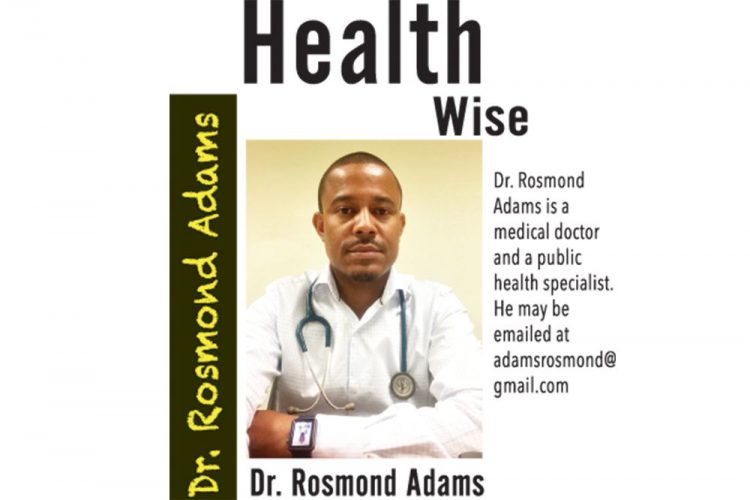Sugar and pressure not a good combination

Some people may suffer from high blood pressure (hypertension), while some may suffer from high blood sugar (diabetes). However, there are a significant number of Vincentians who are both hypertensive and diabetic at the same time. This is of serious health concern, since these two diseases can lead to a myriad of complications.
Hypertension is common among patients with diabetes, with the prevalence depending on the type and duration of diabetes. Other factors such as age, sex, race/ethnicity, BMI, history of glycemic control, and the presence of kidney disease are among other factors that can determine if one will suffer from both diseases at the same time.
Furthermore, hypertension is a strong risk factor for atherosclerotic cardiovascular disease (ASCVD), heart failure, and microvascular complications. ASCVD is defined as acute coronary syndrome, myocardial infarction (MI), angina, coronary or other arterial revascularization, stroke, transient ischemic attack, or peripheral arterial disease presumed to be of atherosclerotic origin. This is the leading cause of morbidity and mortality for individuals with diabetes and is the largest contributor to the direct and indirect costs of diabetes.
According to the American Diabetic Association, the combination of high blood pressure and type 2 diabetes is particularly lethal and can significantly raise your risk of having aâheart attack and stroke. Having type 2 diabetes and high blood pressure also increases your chances of developing otherâdiabetes-related diseases, such asâkidney disease andâblindness.
Thereâs also significant evidence to show that chronic high blood pressure can speed the arrival of problems that are associated with aging, such asâAlzheimerâs disease and dementia.
Blood pressure medication is recommended if blood pressure consistently remains above 140/90 for people with diabetes, despite lifestyle changes.
Most people with hypertension will need to keep taking blood pressure medication for the rest of their lives.
The only exception would be for someone whose blood pressure has been well controlled for a significant period of time, due to major lifestyle changes, such as losing a lot of weight, being consistently active or after a significant reduction in alcohol consumption.
The combination of these two diseases is a serious problem and patients with one or the other should avoid developing the other. If you are living with both, it is important that you take extra steps to ensure that they are both controlled to avoid the complications.
Dr Rosmond Adams, MD is a medical doctor and a public health specialist with training in bioethics and ethical issues in medicine, the life sciences and research. He is a lecturer of medical ethics.
He is the head of Health Information, Communicable Disease and Emergency Response at the Caribbean Public Health Agency (CARPHA). He is also a member of the World Health Organization Global Coordination Mechanism on the Prevention and Control of NCDs.
(The views expressed here are not written on behalf of CARPHA nor the WHO).
You may contact him at adamsrosmond@gmail.com









